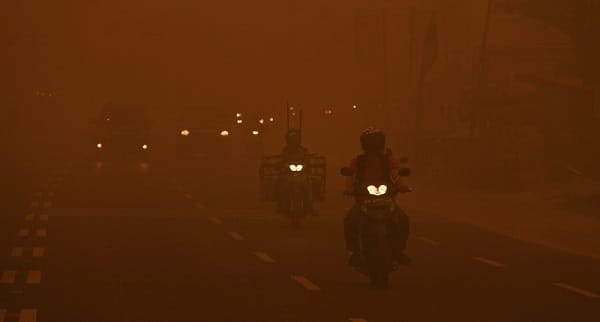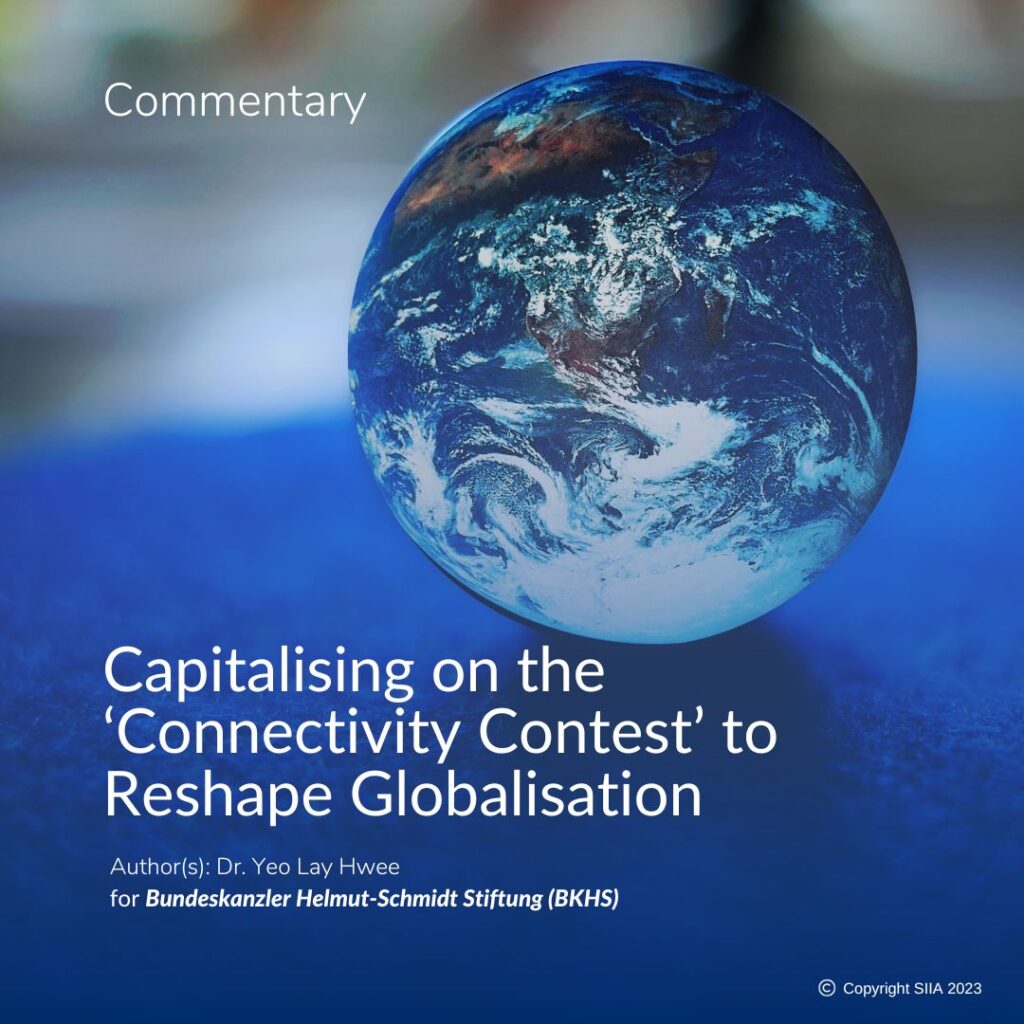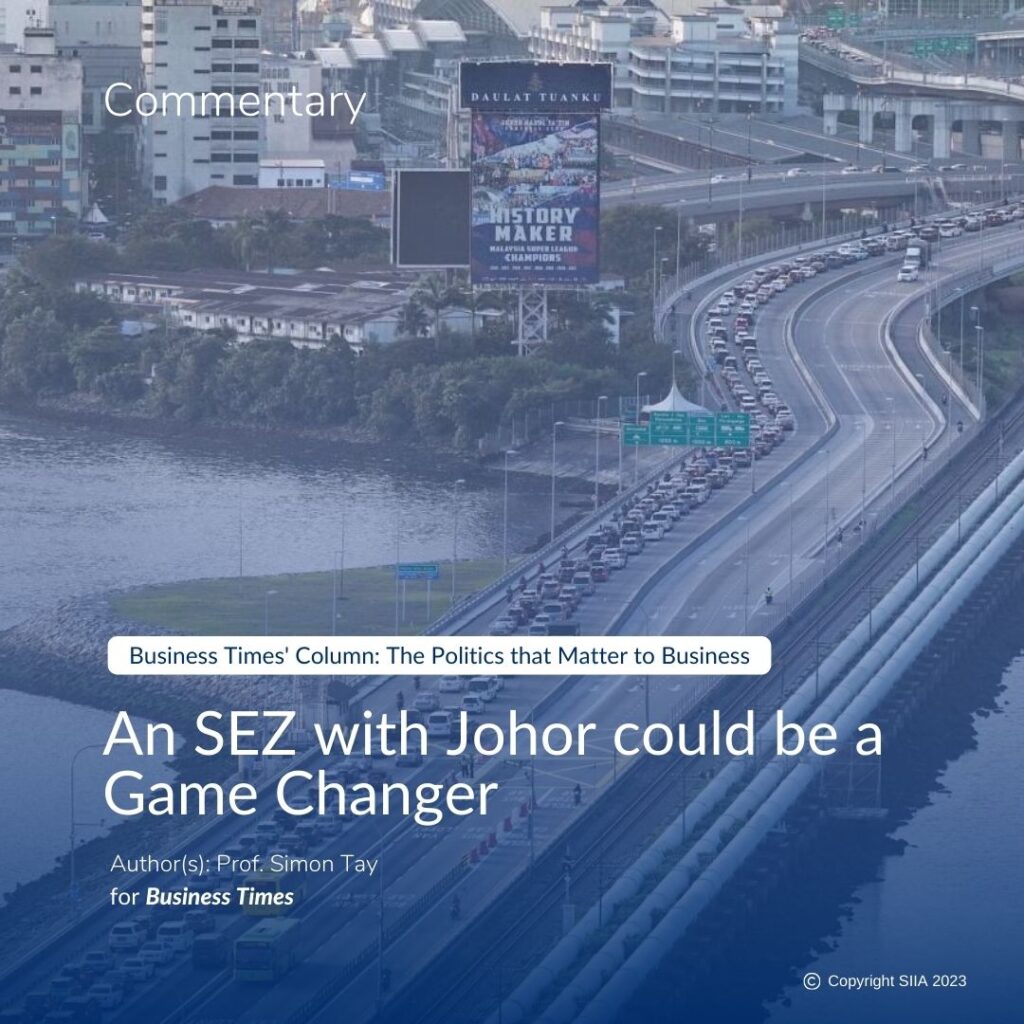The haze in Singapore is at a historic level, exceeding the worst seen back in 1997-98, and blankets the global city in a rancid shroud of grey. Neither is Malaysia spared; several parts of the Peninsula register unhealthy pollution readings.
Reports again point to land and palm oil plantation fires in Indonesia as the cause. The haze is a recurrent phenomenon and its return is greeted with a mix of anger and fatalism. People feel there has been plenty of time to fix the problem, so finger-pointing ensues — at Indonesia, the Singapore Government or palm oil plantations.
It is right to expect that regional governments should send the strongest political signal to address the situation. This is especially as the Association of South-east Asian Nations (ASEAN) Foreign Ministers’ Meeting will take place next week, notwithstanding other items on the agenda such as ASEAN economic integration and tensions in the South China Sea.
In raising this issue, however, finger-pointing can be counterproductive — because, fundamentally, Indonesian cooperation is needed.
INDONESIA HAS INCENTIVES TO DO BETTER
Prime Minister Lee Hsien Loong did the right thing when he raised the issue with President Susilo Bambang Yudhoyono during their bilateral dialogue back in April. Other Singapore ministers — Dr Vivian Balakrishnan for the environment and Mr K Shanmugam at foreign affairs — have now contacted their counterparts.
Parts of the Indonesian establishment can respond positively. The bilateral relationship between the two countries is positive on many fronts. Indonesia has also taken up a high profile in leading ASEAN and will try to avoid tainting their growing reputation. In addition, Indonesian authorities need to act for the sake of their own citizens — the very worst of the haze afflicts the towns and peoples of Riau, which is nearest to the fires.
The global implications of the fires and haze for climate change are another dimension. The haze represents a huge spike in climate change gases that sends Indonesia into the uppermost bracket of worldwide polluters.
In ongoing negotiations at the United Nations, Indonesia stands to gain billions in funds from schemes to reduce carbon emissions by avoiding deforestation and land degradation. But any funding is contingent on proof that Indonesia can stand by pledges to conserve forests lands. The current fires vividly undercut such belief.
There are, therefore, domestic, regional and international reasons for Indonesia to do better in addressing the problem. Some elements in Indonesia will respond positively. After all, in 2006, President Yudhoyono pledged to reduce the number of fires, and this had some effect. That presidential pledge should be renewed. Furthermore, Indonesia should finally ratify the ASEAN Haze Agreement that was concluded more than a decade ago.
S’PORE CAN’T ACT ALONE
Yet, even if it does, doubts remain about how effective Jakarta promises will be in the now de-centralised provinces. This is especially as the Indonesian forestry and agricultural ministries seem to take quite a different attitude. When criticised, a forestry official responded recently that Singaporean and Malaysian companies are to be implicated. When the Singapore Government asked Indonesia to name the companies responsible, an Indonesian government official warned “foreign parties” not to meddle in its internal affairs.
Yet, this is a critical question to be answered. If it is true that the Indonesian operations of Singaporean and Malaysian corporations are involved, nationality must not excuse inaction. It instead shows the importance of cross-border governance.
The burgeoning industry of plantation and forestry resources in South-east Asia is linked by trade, consumption and finance, and governments need to work together to better regulate the corporations across borders.
It does not, however, make sense for Singapore to try to act alone. Without evidence, any ban on trade would run the danger of demonising the entire palm oil industry. This is unfair and, indeed, counterproductive when some companies are trying to green themselves in response to consumer demands and have pledged not to use fire. Even if Singapore did boycott the trade, unless others join in the move, the industry would simply shift elsewhere while the haze remains.
CONSISTENCY NEEDED
The reality is that there is no silver bullet for an immediate solution. The issue can, however, be managed, and it has been better managed in the recent past. Witness the relative drop in haze and fire after 1997-98, before again spiking in the last two years.
But even management needs consistent attention and considerable resources, whereas for most people, concern over the haze is only really activated when the problem is literally in our face.
Cooperation is also complicated across borders and across sectors — with governments and large corporations, as well local communities involved. This was tested and showed signs of success when Singapore’s National Environment Agency worked from 2007 with Indonesian provincial authorities on limited sites in Jambi.
A multi-level approach is needed. First, there needs to be a clear and consistent political signal from regional leaders and ministers. We should expect that the Foreign Ministers’ Meeting next week will address the issue, at least on the sidelines, among the concerned countries. Indonesia should also ratify the ASEAN treaty.
TACKLING THE COMPANIES
Beyond this, there is harder work to reach the palm oil companies as well as the supply chain and financial companies that support the industry.
Governments need to adopt a carrot-and-stick approach towards companies operating on the ground. Even as errant companies are brought to account, firms that are sincerely and successfully implementing sustainable measures in their operations should be commended. This would encourage other companies to follow suit.
For this, the role of non-government organisations will be important. Some NGOs in Indonesia, such as the national branch of Greenpeace, have been collating hard evidence of plantation owners conducting illegal burning activities, raising public awareness of these errant companies and assisting in the prosecution of some. Others, like the World Wide Fund for Nature, have been helping to set aside tracts of rainforests to protect them from loggers and burners alike.
Ultimately, the question remains of how to put all these together. What is required is a regional dialogue among the different stakeholders — agencies of government, diverse corporations and community and environmental groups. Only then can common points be agreed upon and cooperative work begun, rather than pushing the blame around. But this will require much more consistent attention, persistent work and resources than have been given to the issue to date.
ABOUT THE AUTHORS:
Simon Tay and Nicholas Fang are, respectively, Chairman and Executive Director of the Singapore Institute of International Affairs (SIIA). The SIIA has analysed and held a series of dialogues on the fires and haze since 1997. This article first appeared in TODAY on 21 June 2013




